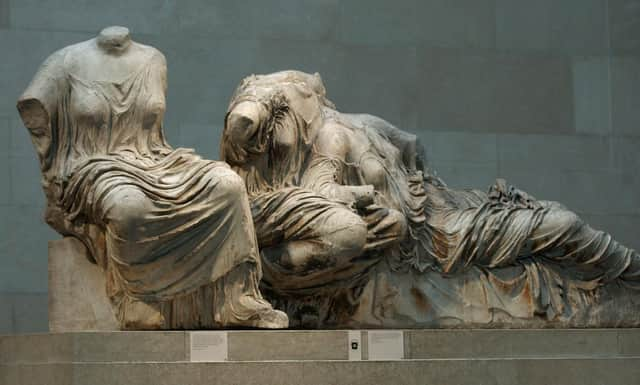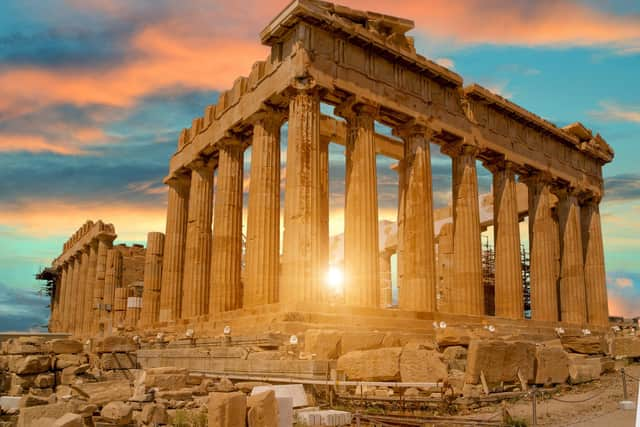Elgin Marbles debate rages on after No 10 cancels meeting between Rishi Sunak & Greek PM Kyriakos Mitsotakis


The Elgin Marbles are undoubtedly one of the most important ancient artefacts humanity still has in its possession. And more than 2,000 years after they were first built, they arguably remain as divisive as ever given 2023's British Museum scandal.
Downing Street believes it had assurances that the Marbles - also known as the Parthenon Sculptures - would not become a talking point when Greek PM Kyriakos Mitsotakis recently visited the UK. But a Greek source has denied this, deepening a row over the possession of the items between the UK and Greece.
Advertisement
Hide AdAdvertisement
Hide AdGreece's Prime Minister told the BBC that having some of the treasures in London and others in Athens was like cutting the Mona Lisa in half. And there's arguably good cause for opening up a dialogue on what should happen here. That's not least because they've been in the British Museum since 1832 - the same museum that was embroiled in controversy earlier this year when it was revealed around 2,000 artefacts had been stolen from the UK institution - leading to its former director Hartwig Fischer quitting in disgrace.
Just how good is the museum looking after its inventory? It's the question on many people's lips since this all came to light. And it seems that the current interim director of the British Museum may just agree with my point of view too.


The Marbles are more than 30 ancient stone sculptures from the Parthenon in Greece which are held in the British Museum. They date back more than 2,000 years and they were transported to Britain in the early 1800s by Thomas Bruce, the 7th Earl of Elgin.
It is known that the Parthenon Marbles (Or Parthenon Sculptures) were removed from the Parthenon temple in Athens, Greece back in 1801 by Lord Elgin. The British diplomat, then the ambassador to the Ottoman Empire which ruled Greece at the time, oversaw the removal and shipping of the marbles to the UK in 170 crates.
Advertisement
Hide AdAdvertisement
Hide AdDestroyed by many events during its long history - including a 1687 explosion - around 50 percent of the original architectural decoration on the Parthenon is now lost. Elgin's actions were investigated by Parliament and deemed legal in 1816. The ancient sculptures represent a key part of Greece's cultural heritage.
The Parthenon is a temple built by the ancient Greeks in the 5th century BC but some of the Marbles are much older as they are from the Treasury of Atreus in Mycenae - constructed between 1300 and 1250 BC, making them more than 3,000 years old.
Speaking earlier this year, the British Museum's interim director Sir Mark Jones spoke about the Marbles. He said: “There must be a possibility that something could now work for all parties. I cannot tell another museum how to behave on this, but I do believe it is possible to develop partnerships. It can be good to display objects at different places.
“Wherever there is a strongly held belief there is an opportunity, too, if it can be recognised. It is not necessarily a case of transferred ownership or of giving the marbles back for good, but when people believe things are really important, as the Greeks and the British Museum do in this case, that is actually a good thing. Apathy is our great enemy.”
Advertisement
Hide AdAdvertisement
Hide AdIn a changing and progressive world, where colonisation is becoming an ever-distant theme of the past, perhaps the need for more serious discussion and ideas is needed. Why should the British Museum be the sole keeper of these ancient wonders when the country they were built in so desperately wants to see them returned?
As the row over the Marbles deepens, the need for a solution becomes clearer and clearer.
Comment Guidelines
National World encourages reader discussion on our stories. User feedback, insights and back-and-forth exchanges add a rich layer of context to reporting. Please review our Community Guidelines before commenting.
